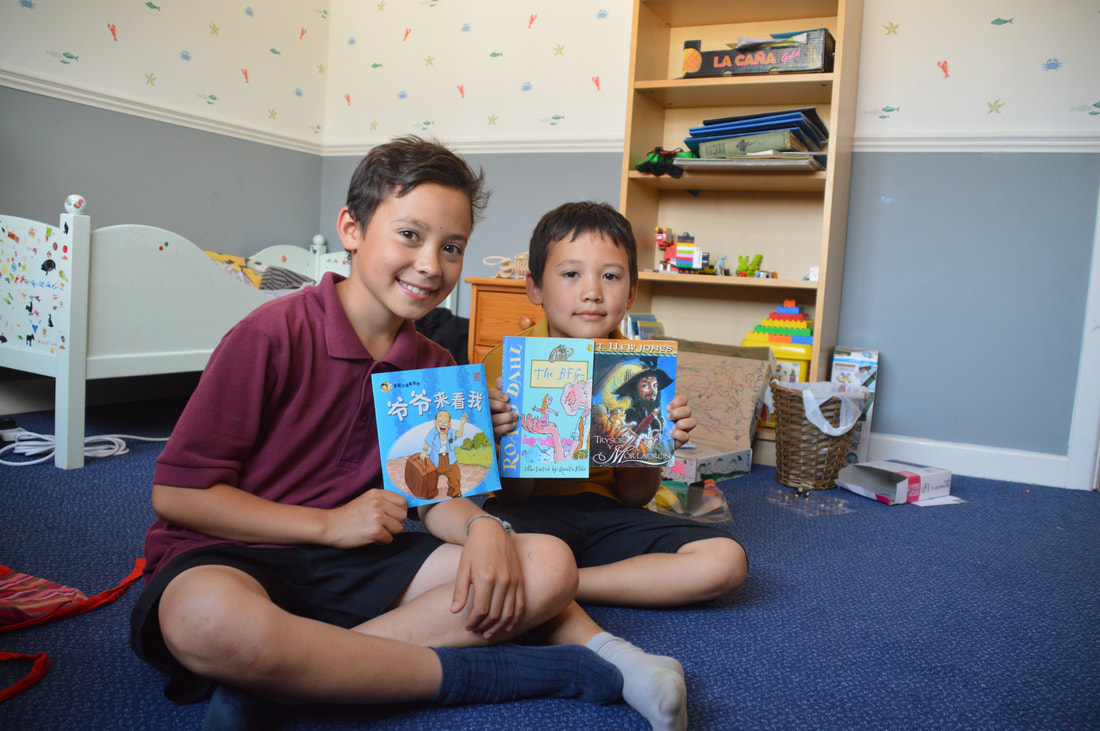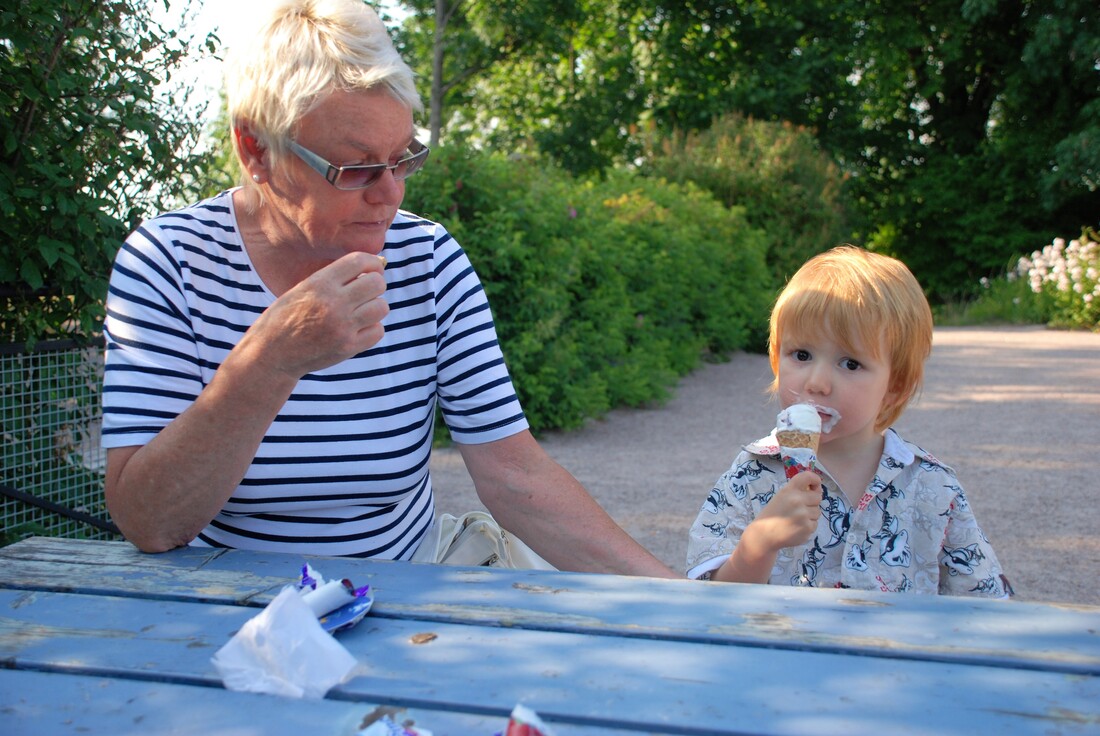|
Language development is a dynamic process and maintaining a language a life-long expedition. Only some children born into multilingual homes grow up speaking two or more languages. There are families who manage to transmit multiple languages to their children, but others do not, resulting in the children having a passive or limited knowledge of the minority language/s. Children tend to learn the majority language in the country but may struggle with the transmission of the minority language that is not widely spoken in the community. Each family's circumstances are different, and some may, despite their best efforts, not establish or maintain a heritage language. A family living in Finland, whose languages are Finnish, English and Swedish, is much more likely to succeed in gifting these languages to the child than a family where the child hears a language just from one person in everyday life. Factors affecting children's language acquisition and learningIn addition to the language combination of a potentially multilingual child, there are a variety of psychological, social, and educational factors that interact in complex ways and determine the linguistic level a child can achieve. Every child’s language learning journey is unique, even siblings within the same family often end up with differing skills. A good starting point would be to think through some questions which may indicate the degree of language skills your child could possibly achieve. Which languages are necessary for the child? At what age do they acquire a minority language? How, where, and how often is the child exposed to the language? Who are going to speak the language regularly with the child? A growing child’s attitude towards languages also plays a key role because it impacts their motivation. It can be challenging to learn anything if you don’t have the motivation! The parents, siblings, extended family, teachers, and peers influence the children’s language attitudes. Also school, communities, political and sociocultural changes, familiarity with the languages, status of the languages, country of birth, the number of years spent in the country, and second language support have a major impact on building a positive attitude. Setting up your family language policySo, families' individual circumstances, the societal characteristics and language methods or strategies used by parents affect the level of languages a child can achieve. It is important for us as parents to be kind to ourselves and encourage positive interaction with the child in a minority language. We know ourselves that it is nearly impossible to become ambilingual, or completely master two or more languages. Our level of language skills fluctuates over time. A positive attitude towards a minority language from both parents and the child’s motivation to learn the language support minority language development and maintenance. Many parents have a specific family language policy in place. The family language policy may detail methods that encourage a child to practice their main languages daily. This has been proven to improve the chances of successful language transmission. Which language strategies are you going to use to help your child develop their first languages? Kaisa Pankakoski Kaisa Pankakoski’s PhD research looks at language ideologies and experiences of multilingual families in Finland and Wales. The research was awarded the city of Helsinki research grant and Svenska litteratursällskapet i Finland funding. More information READ MORE
0 Comments
Many parents view bilingualism as an opportunity and decide to transmit more than one language to young children. In addition to the majority language of the country, children often learn a heritage language, a minority language, a language they may have acquired due to immigration, or an additional language not spoken as a native language by either parent (non-native bilingualism). For my PhD study I investigated 14 Welsh or Finnish families who used more than two languages on a regular basis. Every single parent told me about the unexpected challenges of raising a multilingual child. Parenting can be hard—add a few extra languages with little support, and that can sometimes seem like an impossible task. The foreign-born case study parents I interviewed for my research described the extra challenge of raising children with several languages as hard work, exhausting and swimming against the tide. Despite this, they wanted the children to speak multiple languages. I asked the parents to give me reasons why they continued the quest of multilingual upbringing. Why did they want to keep on swimming against the tide? Why raise a multilingual child? The parents in my investigation considered bilingualism as a positive thing and an advantage for their children. My case study parents, and parents in previous studies have mentioned different ideological motivations for raising a polyglot. I will list four of the most common reasons below. 1. Heritage and identityParents feel that by transmitting a heritage language, they also transmit a child their heritage; or a language is a part of the child’s heritage and identity. anguage goes hand in hand with roots and culture and therefore many view it as essential if you want the child to understand the culture of their heritage. Families believe in the importance of language skills to support the children’s multilingual and multicultural identities. Parents also feel a heritage language provides a sense of belonging, self-understanding, and self-assurance, and enables children access to culture and values of the heritage. 2. Communication with extended familyMany families want their children to know a heritage language so that they can speak with relatives. For example, some grandparents may not understand the child’s first language, so knowledge of a heritage language enables the children to communicate with them. Foreign-born or minority language speaking parents value children getting to know grandparents, uncles, aunts, cousins, or friends back home through a minority language. 3. Increased cognitive abilitiesThe interpretation of scientific research on early bilingualism was mentioned as an important reason for transmitting more than one language. Some studies discuss a link between the mental exercise of using several languages and increased cognitive benefits, such as children's language skills (Engel de Abreu 2011), higher levels of cognitive empathy (Dewaele and Wei 2012) and delays regarding the onset of Alzheimer disease symptoms (Chertkow et al. 2010; Klein et al. 2016). 4. Future opportunitiesLanguage skills can be an advantage in the globalised world. Multilinguals may have widened future study or employment possibilities, and access to more opportunities thanks to knowing multiple languages. Parents often see early language acquisition as a useful investment in the children’s future. Kaisa Pankakoski Kaisa Pankakoski’s PhD research looks at language ideologies and experiences of multilingual families in Finland and Wales. More information READ MORE
|
kirjastoKirjasto-sivuilta löydät artikkeleita, juttuja, vinkkejä ja oppaita sekä tutkimustietoa kahden kulttuurin perheitä lähellä olevista aiheista
kategoriat
All
|
|
|
© Familia 2024




 RSS Feed
RSS Feed

